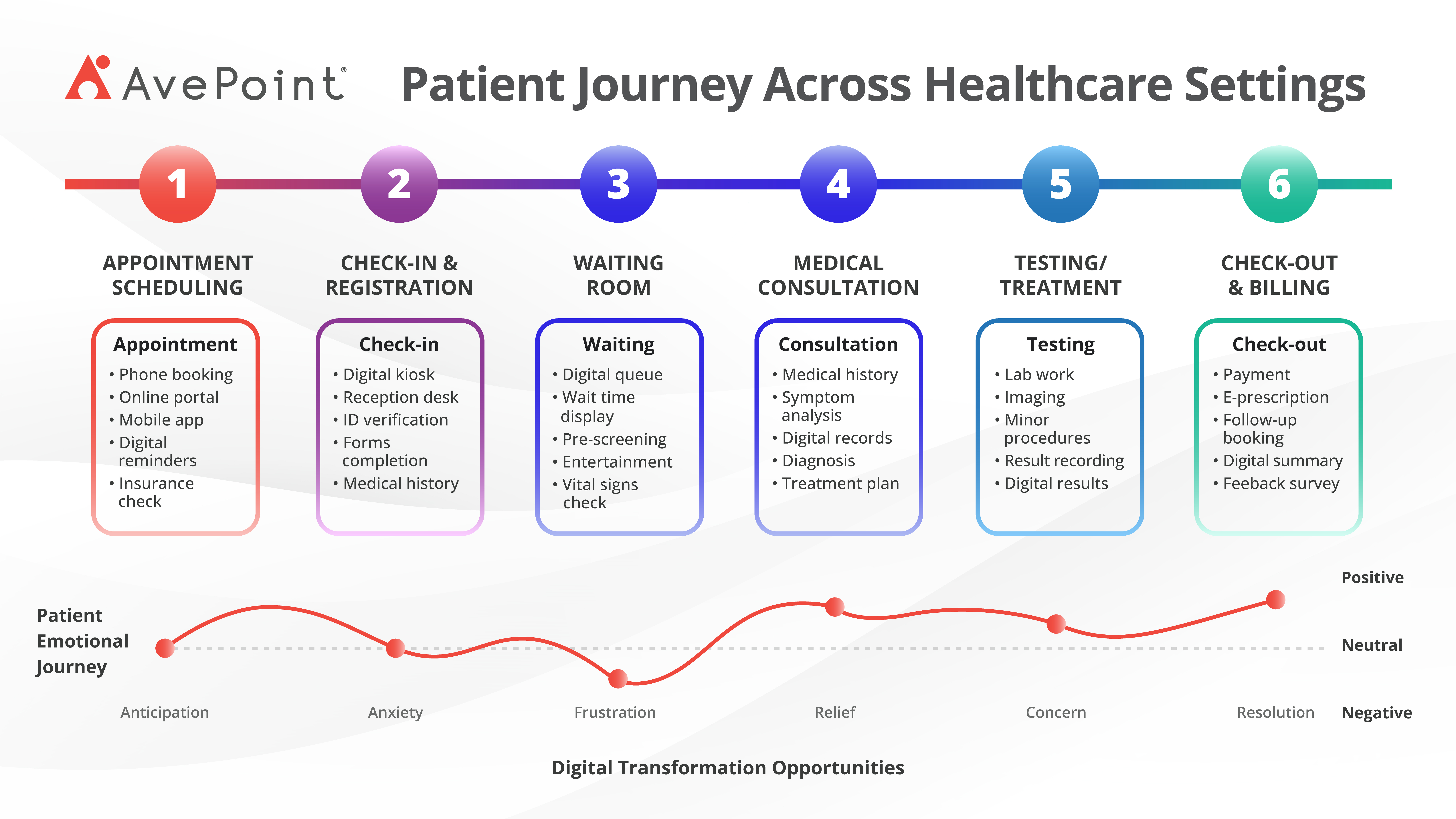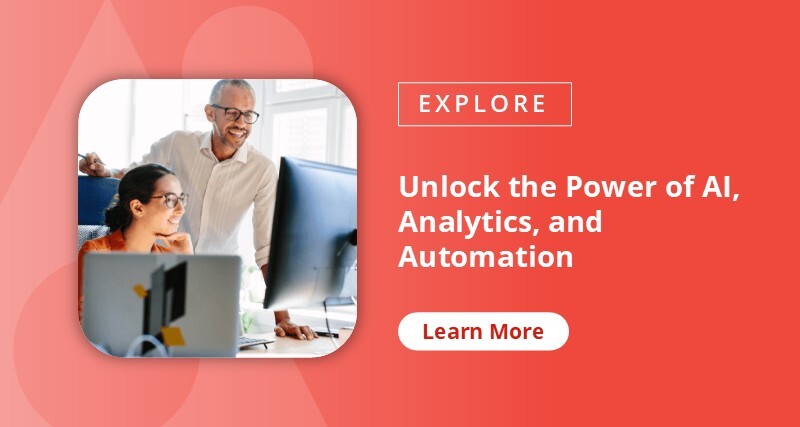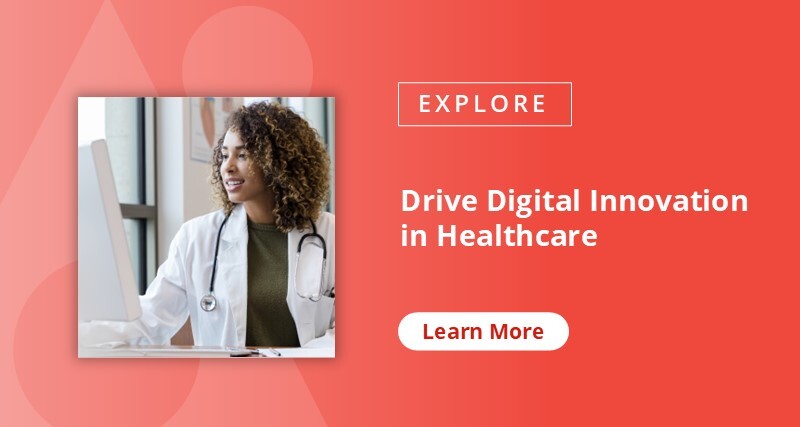Imagine a healthcare system where everyone, regardless of age, ability, or background, feels truly cared for. This vision of inclusivity and accommodation is essential to ensure equitable care for all. From accessible services for individuals with disabilities to culturally sensitive care for diverse communities, our healthcare system must evolve to meet the needs of every patient.
Specifically in Singapore, the need to efficiently support the elderly is crucial as this demographic is expected to reach about 900,000 by 2030. For a country facing an anticipated increase in healthcare support along with a shortage of healthcare manpower, integrating technologies that can ease their burden while creating a supportive environment where all patients feel valued and understood is important.
In fact, according to McKinsey, about 75% of healthcare executives consider digital transformation a high priority, signifying the vital role that technology plays in healthcare today.
In this blog, we’ll discuss key healthcare technologies that can pave the way for improving the delivery of healthcare services to patients.
From Patient Flow to Patient Journey
Efficiency is the cornerstone of a thriving healthcare system. When it falters, patient care suffers, leading to frustrating delays and diminished service quality. Imagine a world where integrated systems seamlessly enhance patient flow, ensuring timely and superior care for everyone. By reframing our approach to efficiency, we can transform the healthcare experience, making it smoother, faster, and more effective for all.

It’s essential to have the right tools and systems in place to ensure patient handling is well-organised.
Here are some ways healthcare technologies can enhance patient assistance:
Automation Streamlines Patient Scheduling and Follow-Ups
Without automated patient scheduling, patients experience significant inconveniences. They must either call clinics for appointments, enduring long wait times and navigating complex phone menus, or physically queue up in a doctor's office, which is particularly burdensome for those with mobility issues or transportation limitations. This manual scheduling process consumes valuable time that patients could otherwise spend on productive or worthwhile activities.
For clinical staff, manual scheduling disrupts workflow as they juggle phone calls and in-person care. The system's susceptibility to human error can lead to double bookings, missed appointments, and communication failures, ultimately delaying care and reducing patient satisfaction. Additionally, clinic staff spend considerable time on manual schedule booking and tracking, time that could be better used to focus on patient welfare and healthcare.
Singapore is targeting to hire 82,000 nurses by 2030 to meet the growing demand for patient care. But according to Deloitte, about 15% to 28% of nurses' work consists of low-value tasks, including manual scheduling.
To alleviate these issues, many healthcare providers are adopting AI-powered, automated scheduling systems and intelligent contact centre technologies. To enhance both operational efficiency and patient experience, these technologies enable a multitude of capabilities:
- Automated scheduling systems that match patients with appropriate time slots based on urgency, availability, and individual preferences — minimising manual intervention.
- Intelligent contact centres using AI-driven voice and chat agents to handle routine queries, such as appointment confirmations, prescription refills, and billing inquiries.
- Call deflection strategies to direct patients to self-service options where appropriate, reducing pressure on human agents while maintaining service quality.
- Integrated CRM and contact centre tools to provide a unified view of patient interactions, ensuring continuity and consistency across communication channels.
- Proactive notifications and reminders via SMS, email, or phone help decrease no-shows and encourage timely follow-ups.
Beyond convenience for patients, implementing AI, machine learning, and deep learning in scheduling systems is projected to result in net savings of up to US$360 billion for healthcare institutions, according to McKinsey.

Digital Systems Elevates Resource Management for Enhanced Patient Care
According to Deloitte, 88% of healthcare executives believe that the adoption of digital tools will positively impact healthcare organisations' strategies by 2025. Currently, 72% of the respondents have already invested in digital tools. While many healthcare organisations globally have started using digital systems, some still rely on manual processes.
Traditional resource management involves inefficient manual methods such as spreadsheet tracking, phone calls between departments, and physical inventory counts. These processes are prone to errors and delays. More importantly, they often contribute to data silos, where critical patient information is isolated across different systems, making it difficult for healthcare providers to access the complete picture of a patient’s health.
In contrast, digital resource management systems solve this challenge by integrating data across departments and providing real-time access to patient information, ensuring that complete patient data is available when needed — improving coordination and reducing the risk of duplication or medication errors. These systems also enable optimal allocation of resources such as hospital beds, medical equipment, and staff based on current demands, streamlining operations and enhancing overall efficiency.
Additionally, digital tools such as mobile apps and patient portals improve the coordination between providers and clinics by enabling the sharing of digital laboratory results and facilitating teleconsultations. This digital approach makes it easier for patients to manage chronic conditions, reducing the need for frequent hospital visits and ensuring more personalised, continuous care.
Embracing the Future: The Integration of Advanced Digital Tools in Healthcare
In the modern healthcare landscape, digital transformation is indispensable. By embracing digital tools for the sector, healthcare providers can significantly improve efficiency, reduce wait times, and ensure that every patient receives timely and personalised care.
This integrated, holistic approach not only enhances patient satisfaction but also empowers individuals to gain more control over their health management, leading to improved outcomes, while healthcare providers benefit from streamlined workflows and better resource allocation. The result is a more resilient healthcare system that delivers consistent, high-quality care.
Achieving modern operations in healthcare requires a unified approach to technology, AvePoint brings deep expertise in healthcare and helps with:
1. Breaking down silos between healthcare systems, enabling seamless interoperability.
Our solutions ensure that patient information flows smoothly across different platforms, enhancing care coordination and optimising operational efficiency.
2. Enabling secure, real-time access to patient data.
Our solutions create a unified, secure hub for healthcare professionals, allowing them to collaborate effectively while maintaining stringent compliance with industry regulations. By ensuring that authorised teams can easily share vital patient information, we help reduce errors, improve decision-making, and enhance overall patient care.
3. Leveraging AI and data analytics to transform raw data into actionable insights.
Our expertise allows healthcare organisations to harness predictive analytics, in effect, improving clinical decision-making, optimising treatment plans, and driving better patient outcomes.
4. Providing an integrated digital learning platform.
Our solution enables healthcare organisations to manage, deliver, and track staff training and compliance — supporting lifelong learning and building a future-ready workforce.
Singapore is widely recognised for its world-class healthcare system — one that continues to evolve with a forward-thinking approach to innovation and digitalisation. As the nation advances its Healthier SG vision and moves toward a more preventive, personalised, and connected model of care, technology plays a vital role in enabling this transformation.
A unified and secure digital foundation is essential to deliver timely, coordinated, and patient-centric services. By integrating siloed systems, ensuring regulatory compliance, and supporting continuous workforce development through an integrated digital learning platform, AvePoint empowers healthcare organisations to strengthen their digital infrastructure, enhance system interoperability, and scale innovation — ensuring they remain agile, compliant, and future-ready in an ever-evolving healthcare landscape.
Ready to start your digital transformation journey? Learn more about AvePoint AI-enabled innovations and digital solutions that are shaping the future of healthcare.


